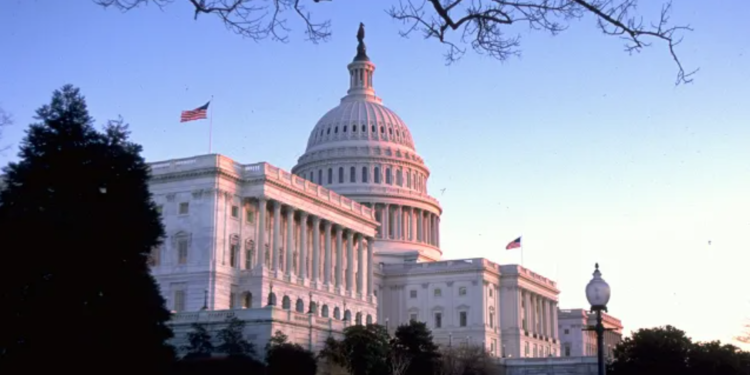May 8, 2025 Story by: Publisher
Federal judges ruled Thursday that Alabama intentionally diluted the voting strength of Black residents when it drew congressional lines and said the state must continue using a court-ordered map that led to the election of the state’s second Black congressman.
A three-judge panel permanently blocked Alabama from using a state-drawn map that they said flouted their directive to draw a plan that was fair to Black voters. The decision was not a surprise because the panel ruled against the state twice previously and put a new map in place for last year’s elections.
The judges said that the map drawn by the Alabama Legislature in 2023 violated the Voting Rights Act, just like the one previously drawn by the state.
The decision mandates the use of a court-ordered map that ensures fair representation for Black voters in congressional elections for the remainder of the decade.
This ruling establishes that the Alabama congressional map must include two districts where Black voters have the opportunity to elect candidates of their choice (like the map ordered by the court in October 2023) for the remainder of the decade. The court-ordered map used in the 2024 elections resulted in Alabama electing two Black representatives to Congress for the first time in history.
“Today’s decision is a testament to the persistence and resilience of Black voters in Alabama, including our clients,” Deuel Ross, deputy director of litigation at the Legal Defense Fund said. “Alabama’s unprecedented defiance of the Supreme Court and the lower court orders harkens back to the darkest days of American history. The court’s ruling reaffirms the rule of law and the importance of protecting the fundamental right to vote of Black Alabamians in the Black belt and all Americans.”
Background of the Case
The legal battle, known as Allen v. Milligan, was initiated in November 2021 on behalf of Evan Milligan, Khadidah Stone, Letetia Jackson, Shalela Dowdy, Greater Birmingham Ministries, and the Alabama State Conference of the NAACP who are represented by the American Civil Liberties Union, ACLU of Alabama, Legal Defense Fund, and Wiggins, Childs, Pantazis, Fisher & Goldfarb.
The plaintiffs argued that Alabama’s congressional map, which confined Black voters to a single majority-Black district despite comprising approximately 27% of the state’s population, violated the Voting Rights Act. In June 2023, the U.S. Supreme Court upheld a lower court’s ruling, affirming that the map likely infringed upon the rights of Black voters.
Court-Ordered Redistricting
Following the Supreme Court’s decision, Alabama’s legislature was ordered to create a new congressional map that provided Black voters with a fair opportunity to elect representatives of their choice. However, the legislature’s revised map still failed to establish a second majority-Black district. Consequently, a federal three-judge panel appointed a special master to redraw the districts. The court-approved map, implemented in October 2023, created a second district where Black voters have a substantial opportunity to elect their preferred candidates.
“This ruling is not just a legal win — it’s an overdue acknowledgment of Alabama lawmakers’ persistent attempts to shut out Black voters from the electoral process,” Laurel Hattix, Senior Attorney at the ACLU of Alabama said. “For decades, Black Alabamians have organized and fought for not just their voting rights, but the voting rights of all Americans. Today, the courts have affirmed what Black voters have long known: fair representation is not optional — it’s a right.”
Historic Election Outcome
The newly drawn map led to a historic outcome in the 2024 general elections. Shomari Figures, a Democrat and former aide to U.S. Attorney General Merrick Garland, won the election for Alabama’s redrawn 2nd Congressional District. This marked the first time Alabama has two Black congressional representatives, alongside Rep. Terri Sewell. Figures’ victory was seen as a significant step toward equitable representation for Black Alabamians.
Source: AP News / NAACP Legal Defense Fund

















